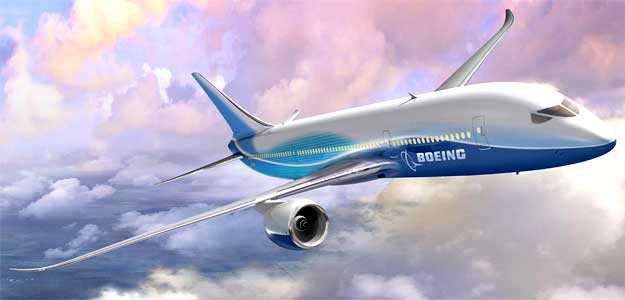 The Federal Aviation Administration (FAA) on Wednesday ordered the grounding of all US-registered 787 Dreamliner aircraft for checks following a number of high-profile incidents in recent weeks. The decision comes a day after Japan’s two main airlines, All Nippon Airways (ANA) and Japan Airlines (JAL), grounded all 24 of their Dreamliners.
The Federal Aviation Administration (FAA) on Wednesday ordered the grounding of all US-registered 787 Dreamliner aircraft for checks following a number of high-profile incidents in recent weeks. The decision comes a day after Japan’s two main airlines, All Nippon Airways (ANA) and Japan Airlines (JAL), grounded all 24 of their Dreamliners.
The directive affects six US-based Dreamliner aircraft, all operated by United Airlines.
“As a result of an in-flight Boeing 787 battery incident earlier today in Japan, the FAA will issue an emergency airworthiness directive to address a potential battery fire risk in the 787 and require operators to temporarily cease operations,” the FAA said in a statement on its website. “Before further flight, operators of US-registered, Boeing 787 aircraft must demonstrate to the FAA that the batteries are safe.”
The battery incident referred to by the FAA involved an ANA domestic flight in Japan which was forced to make an emergency landing shortly after take-off when a smoke alarm started sounding in the cockpit. Initial investigations are focusing on the plane’s lithium-ion batteries.
The ANA incident on Wednesday followed another serious incident where a battery caught fire on a Dreamliner on the ground at Boston Logan International Airport last week.
The 787’s two lithium-ion batteries power the plane’s electrical system, a system which has replaced hydraulic and mechanical ones found on most other aircraft currently in operation.
Root cause still unknown
The FAA said in its statement that the battery failures in both instances had “resulted in the release of flammable electrolytes, heat damage, and smoke” on two Dreamliner planes, adding that the root cause is still under investigation.
“These conditions, if not corrected, could result in damage to critical systems and structures, and the potential for fire in the electrical compartment,” the FAA warned.
Boeing boss speaks
Following the FAA’s announcement, Boeing boss Jim McNerney said in a release his company was committed to discovering the cause of the problem as soon as possible.
“The company is working around the clock with its customers and the various regulatory and investigative authorities. We will make available the entire resources of The Boeing Company to assist,” he said in the statement.
McNerney said he was confident the 787 is safe, adding that Boeing “stands behind its overall integrity.”
The 787 is the most technologically-advanced aircraft Chicago-based Boeing has ever built. Featuring super-efficient engines and a light yet strong carbon fiber frame which helps to drastically cut fuel use, the aircraft is supposed to herald a new era in air travel
However, it’s been beset with problems pretty much from the start. Production and design issues resulted in a three-year delay in delivery to its first customer, ANA, which put the plane into commercial operation in late 2011. And in the last few months a number of incidents, including a cracked windshield, a fuel leak and the recent issues with on-board batteries, have only added to Boeing’s woes.



